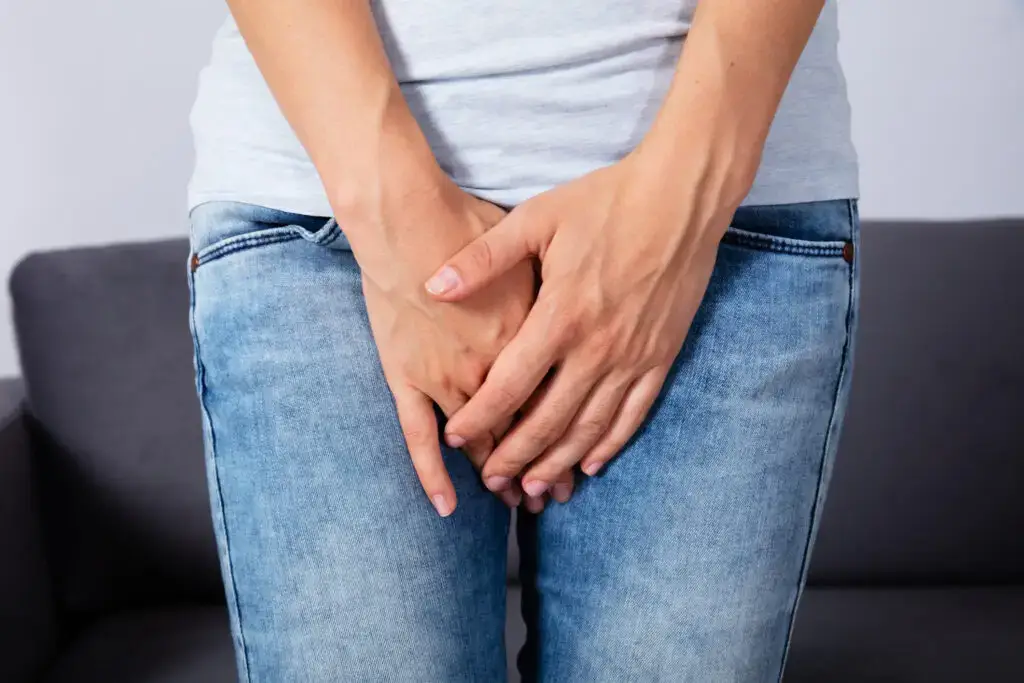We’re letting you know that this post contains sponsored links which Your Savvy Purse receives compensation for, which may impact their order of appearance.
Bladder leakage, or urinary incontinence, is something many people experience at some point in their lives. Whether it’s a small, occasional trickle when you laugh or sneeze, or a more persistent issue, it’s often dismissed as a “normal” part of aging or something you just have to live with. But here’s the truth: bladder leakage is never normal, at any age.
While it may be common, it is not something you should simply accept or ignore. There are underlying causes that can—and should—be addressed. In this blog post, we’ll explore why bladder leakage is not something you should tolerate, what might be causing it, and the steps you can take to regain control of your bladder health.
What is Bladder Leakage?
Bladder leakage is when urine escapes involuntarily from the bladder. This can occur when there’s pressure on the bladder (like during physical activities, laughing, or sneezing) or when the bladder is not able to hold urine due to dysfunction. The medical term for this is urinary incontinence, and there are several types:
- Stress incontinence: Leakage when there is pressure on the bladder (e.g., coughing, sneezing, exercising).
- Urge incontinence: A sudden, strong need to urinate, often leading to leakage.
- Overflow incontinence: When the bladder doesn’t empty completely, causing it to overflow.
- Functional incontinence: Occurs when cognitive or physical impairments prevent someone from reaching the bathroom in time.
While occasional leakage can be a nuisance, persistent or frequent leakage is a sign that something isn’t functioning properly within your urinary system.
Bladder Leakage Is Not Just About Age
A common misconception is that bladder leakage is an inevitable part of getting older. Many people assume that it’s just something that happens with age, particularly for women after childbirth or menopause, or for older adults. But this is not true. While it may be more common in certain age groups, bladder leakage is never “normal.”
There are many potential causes of bladder leakage that have nothing to do with age. Factors such as pregnancy, obesity, pelvic injuries, certain medical conditions (like diabetes, stroke, or neurological disorders), infections, and even some medications can cause incontinence. If bladder leakage starts suddenly or becomes persistent, it’s crucial to speak with a healthcare professional. It could be a symptom of an underlying condition that requires attention.
Why It Happens—And What You Can Do About It
There are several reasons why bladder leakage may occur, and understanding the underlying cause is the first step in treatment.
- Weak Pelvic Floor Muscles: The muscles that control the bladder and urethra are part of your pelvic floor. These muscles may become weakened from childbirth, aging, obesity, or lack of exercise, leading to urinary incontinence. Pelvic floor exercises (like Kegels) can help strengthen these muscles and improve bladder control.
- Hormonal Changes: For women, hormonal changes related to menopause can lead to a decrease in estrogen, which affects the tissues of the bladder and urethra. This can cause irritation or weakening of the bladder control muscles. Hormone replacement therapy (HRT) or localized estrogen treatments may help manage these changes.
- Chronic Conditions: Conditions like diabetes, multiple sclerosis, Parkinson’s disease, and stroke can affect the nerves controlling the bladder, leading to incontinence. In these cases, managing the underlying condition is key to improving bladder function.
- Obesity: Extra weight can put added pressure on the bladder, contributing to stress incontinence. Weight loss, in combination with pelvic floor exercises, can significantly reduce symptoms.
- Infections or Irritations: Urinary tract infections (UTIs) or bladder infections can cause urgency and leakage. Addressing the infection with proper treatment typically resolves the incontinence issue.
- Medications: Some medications (e.g., diuretics, sedatives, or antidepressants) can contribute to bladder leakage by affecting nerve function or increasing the frequency of urination. Talk to your doctor about potential alternatives if you suspect your medication is the cause.
- Overactive Bladder (OAB): This condition involves an abnormal urge to urinate, often resulting in leakage. It can be treated through medication, lifestyle changes, and bladder training.
Why You Shouldn’t Ignore It
Ignoring bladder leakage can lead to more serious health consequences. If untreated, chronic urinary incontinence can lead to:
- Skin irritation or infections: Frequent leakage can cause skin breakdown or urinary tract infections (UTIs).
- Emotional and mental health effects: The stress and embarrassment of bladder leakage can lead to feelings of anxiety, depression, or social isolation.
- Reduced quality of life: Avoiding activities you enjoy because of the fear of leakage (e.g., exercising, traveling, or even laughing) can impact your physical and mental well-being.
Incontinence is not a condition you have to live with quietly. There are effective treatments and lifestyle changes that can greatly improve or even resolve the problem. Seeking help early on can prevent the issue from worsening and improve your quality of life.
What to Do If You’re Experiencing Bladder Leakage
If you’re experiencing bladder leakage, you don’t have to just accept it as part of life. Here are some steps to take:
- See a Doctor: The first step is always to consult with a healthcare provider. They can help identify the cause of your bladder leakage and recommend appropriate treatments. Don’t be embarrassed—urinary incontinence is a common issue, and your doctor is there to help.
- Strengthen Your Pelvic Floor: Whether you’re young or old, strengthening your pelvic floor can make a significant difference. Kegel exercises, which involve contracting and relaxing the muscles you use to stop urination, can help improve control over time.
- Stay Hydrated: It may sound counterintuitive, but drinking plenty of water can help regulate bladder function. Dehydration can actually irritate the bladder, increasing the urge to urinate.
- Maintain a Healthy Weight: If excess weight is putting pressure on your bladder, losing weight may help alleviate symptoms of stress incontinence.
- Consider Behavioral Therapy: Bladder training and timed voiding can help you regain control of your bladder by teaching it to hold urine longer and establishing a regular bathroom schedule.
- Medications and Therapies: In some cases, medications or physical therapy (e.g., biofeedback) may be recommended to help improve bladder control.
- Surgical Options: For some people with severe incontinence, surgery may be considered as a last resort. Options include sling procedures or bladder neck suspension.
Conclusion
Bladder leakage is never a normal part of aging, and you don’t have to suffer in silence. It’s a sign that something isn’t working as it should, and there are treatments and lifestyle changes that can help. If you or someone you know is experiencing bladder leakage, take it seriously and seek medical advice. With the right treatment, you can regain control over your bladder and enjoy life without the worry of leaks.
Don’t let bladder leakage dictate your life—take action, get help, and embrace the confidence that comes with a healthy bladder.



